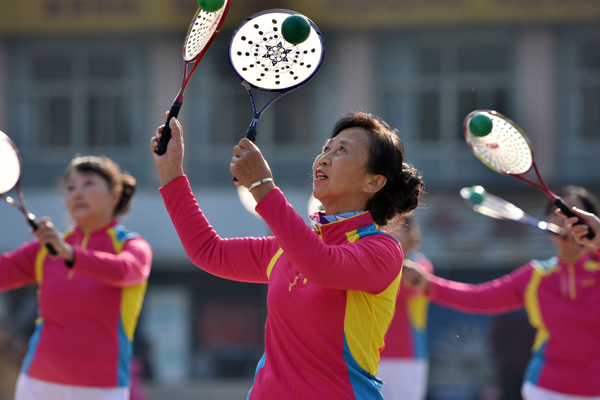5 major changes set for pension insurance system


China's urban and rural residents pension insurance system, covering more than 500 million people, will meet five major changes, four years after it was established in 2014, according to a report by chinanews.com.
The Ministry of Human Resources and Social Security and the Ministry of Finance released a guideline on Monday, indicating that the urban and rural residents pension insurance system, having not been established for a long time, still has some problems and needs to be improved.
The security level of the urban and rural residents pension insurance system is still low, the defined benefit mechanism and normal adjustment mechanisms are unsound and the payment incentive and the restraint mechanism is insufficient, the Ministry of Human Resources and Social Security said.
According to the guideline, four mechanisms, including a defined benefit mechanism, a normal adjustment mechanism on basic pension, an adjustment mechanism on individual payment standard and a dynamic adjustment mechanism on subsidy, will be set up and improved, and the urban and rural residents pension insurance fund will carry out the entrustment investment to realize the value preservation and appreciation of the individual account fund.
Different from the endowment insurance system of urban workers, the urban and rural residents pension insurance system, which is the integration of the previous new rural social pension insurance and the pension system for unemployed urban residents, covers urban and rural residents at the age of 16 and upwards (excluding enrolled students) who are not employed by state organs or are public institution staff and are not covered by the endowment insurance system for workers.
As of the end of December 2017, 512.55 million people were covered in the urban and rural residents pension insurance system, 155.98 million of whom received a monthly pension of 125 yuan per person, according to data released by the Ministry of Human Resources and Social Security.
The guideline said while the central government will rationally determine the minimum standard of national basic pension according to per capita disposable income and the financial status of urban and rural residences, local governments will raise the standard of a basic pension according to local conditions and carry out a preferential policy on urban and rural residents over the age of 65.
In addition, all regions should rationally determine and adjust the basic pension insurance payment grade standard and subsidy level for urban and rural residents according to economic development and the growth of residents' income, the guideline said.
For residents who choose to pay a higher grade fee in pension insurance, the payment subsidy can appropriately be increased to guide more people to choose the high grade standard payment, according to the guideline.




































